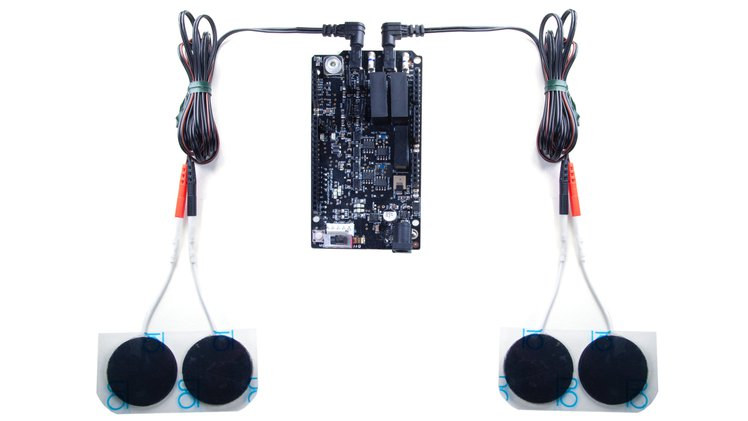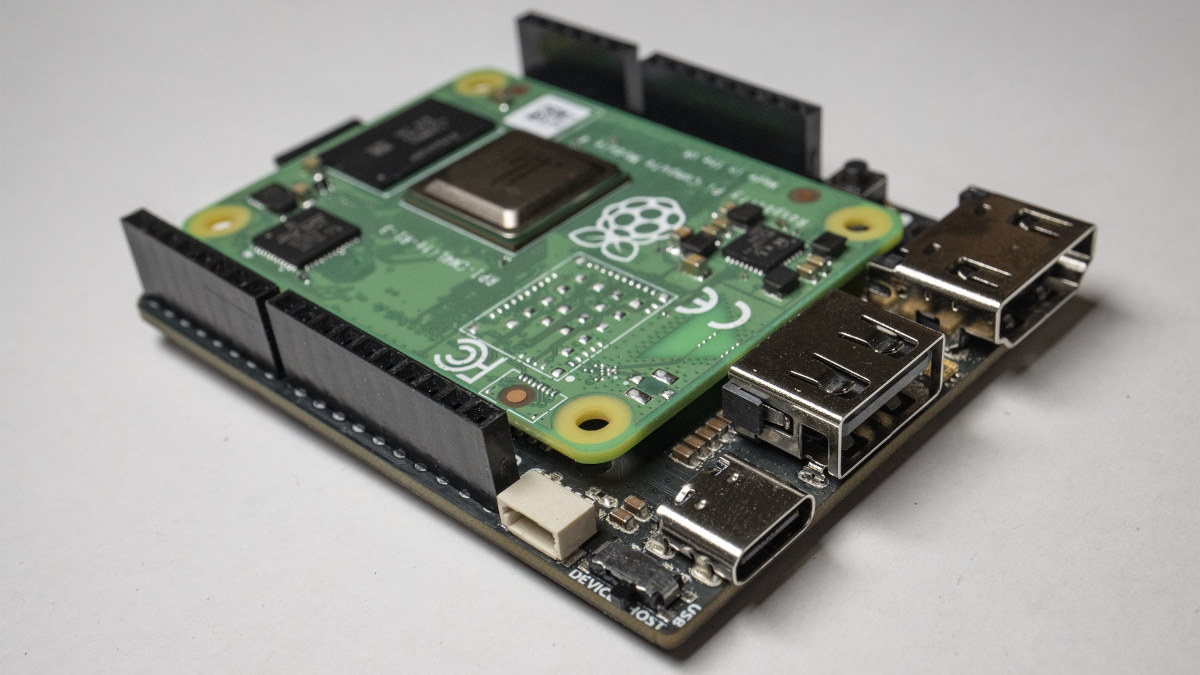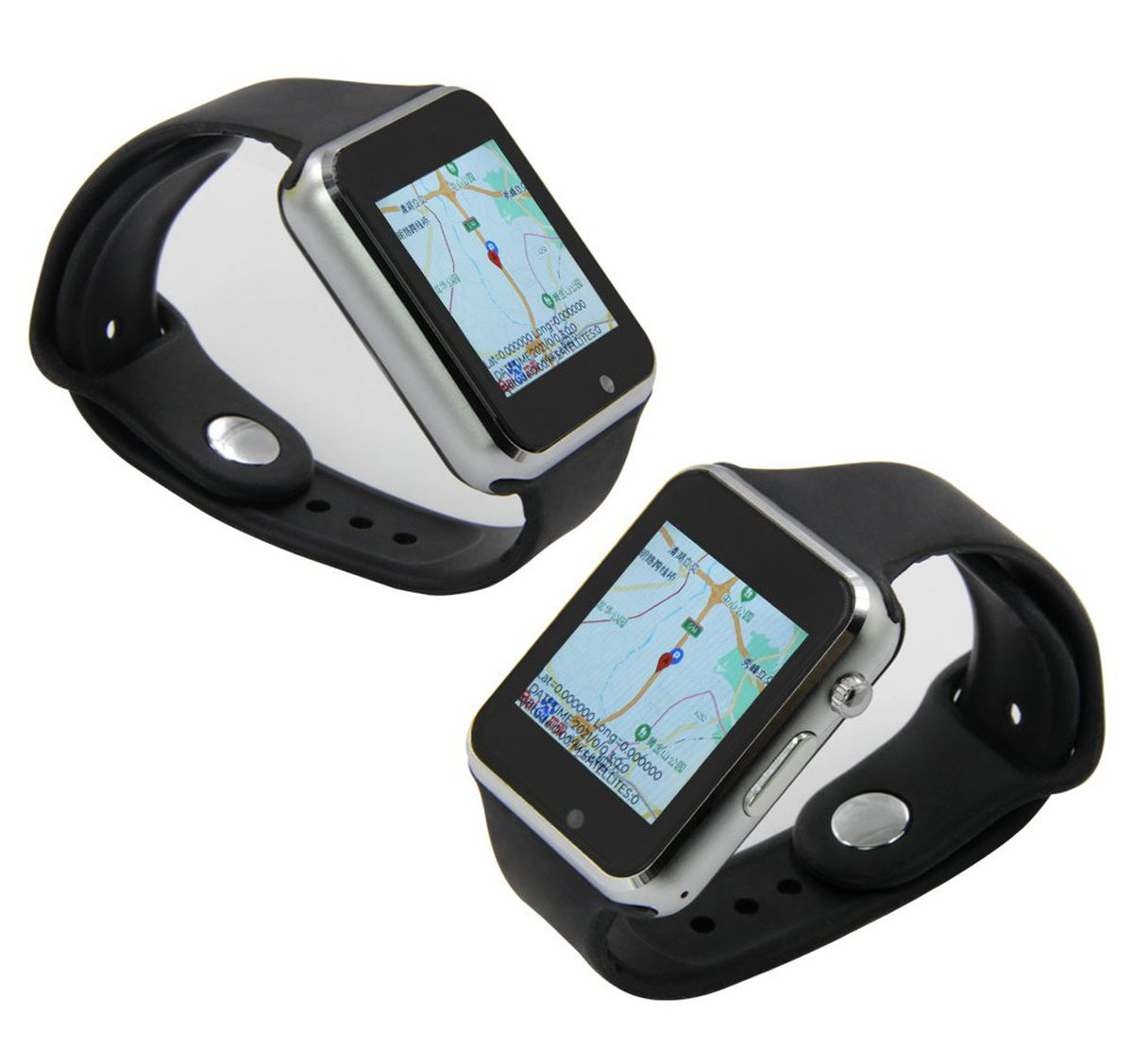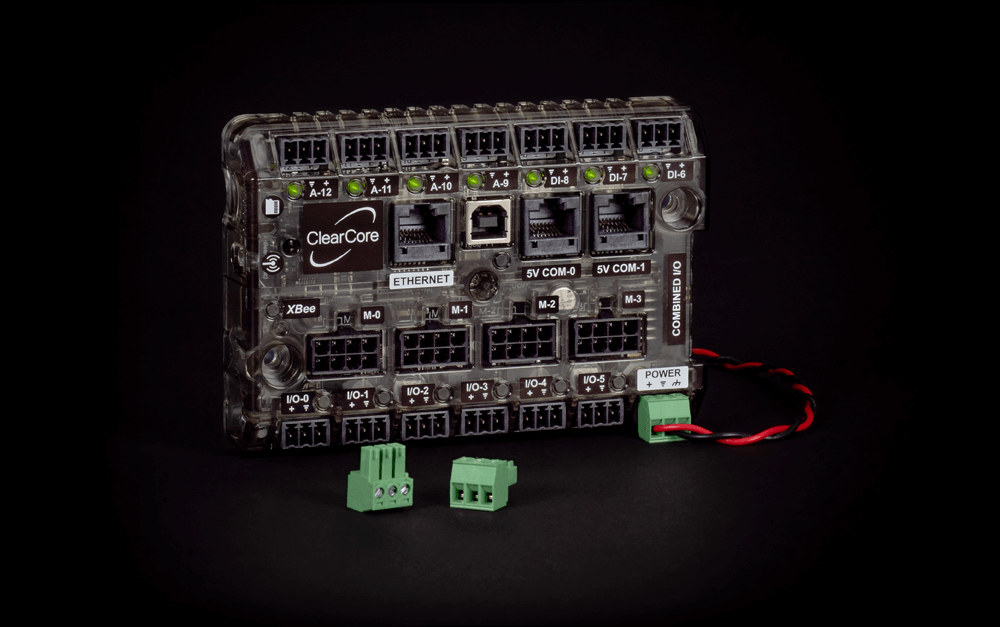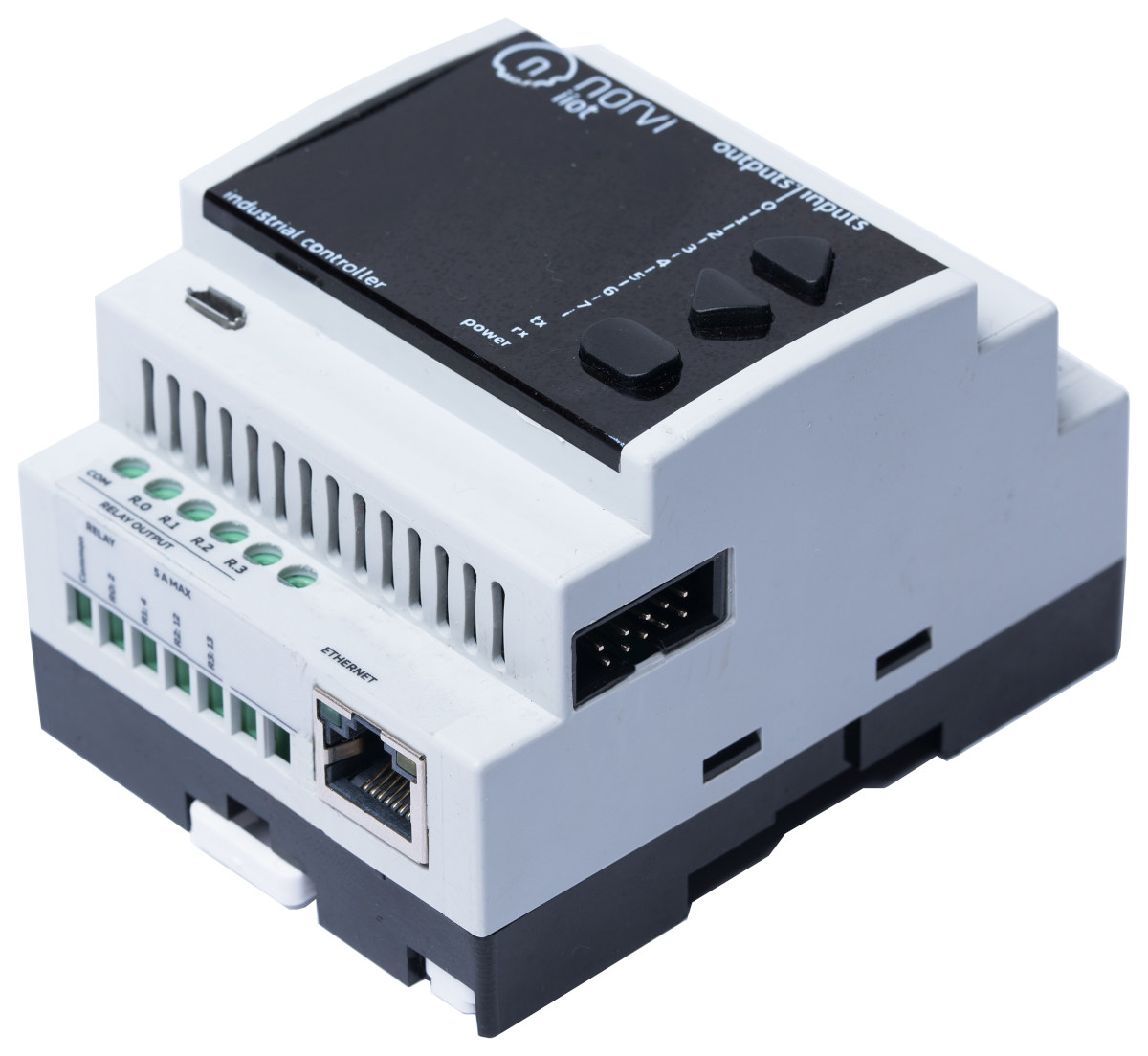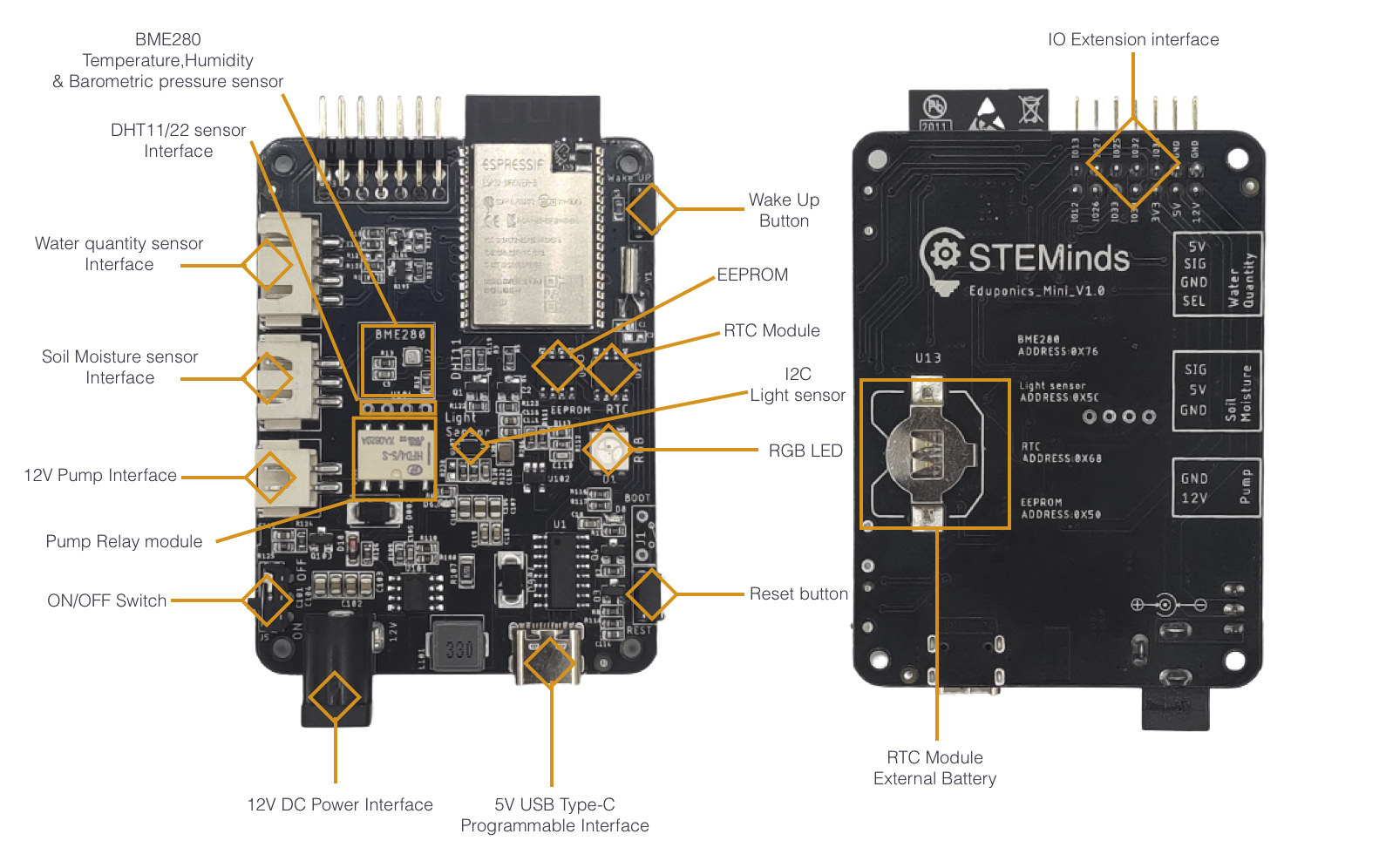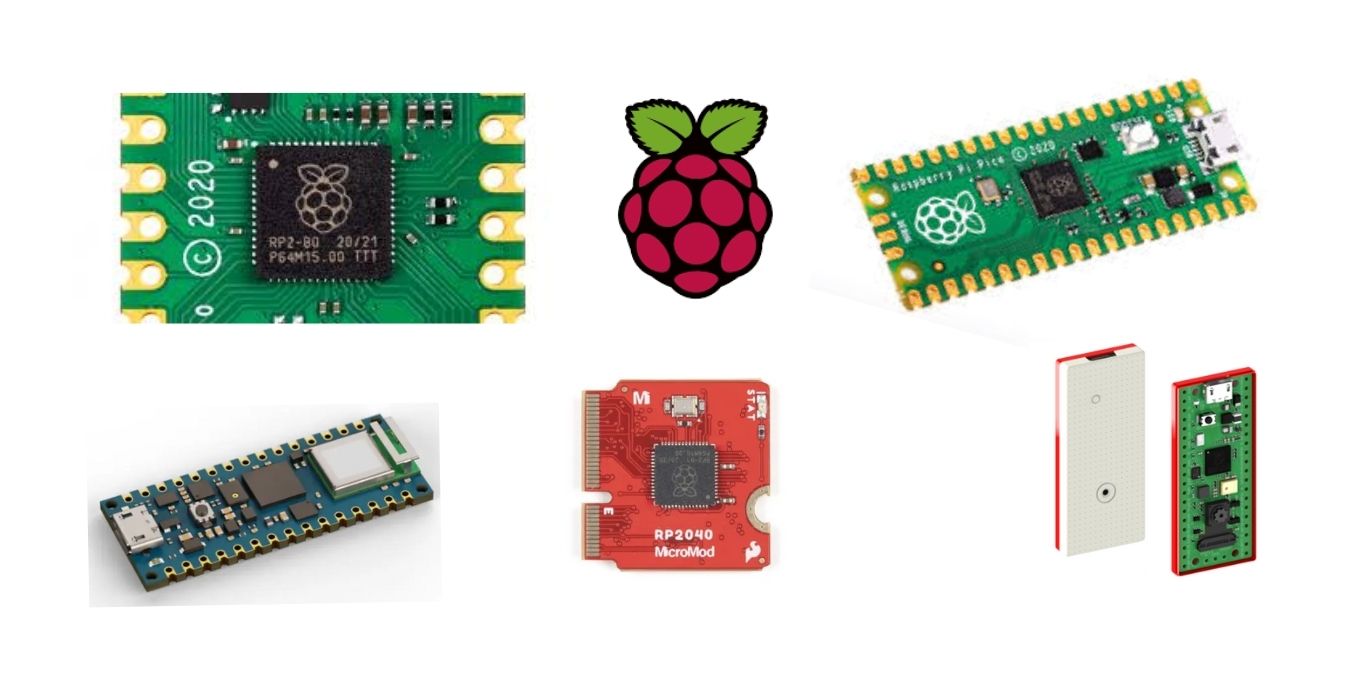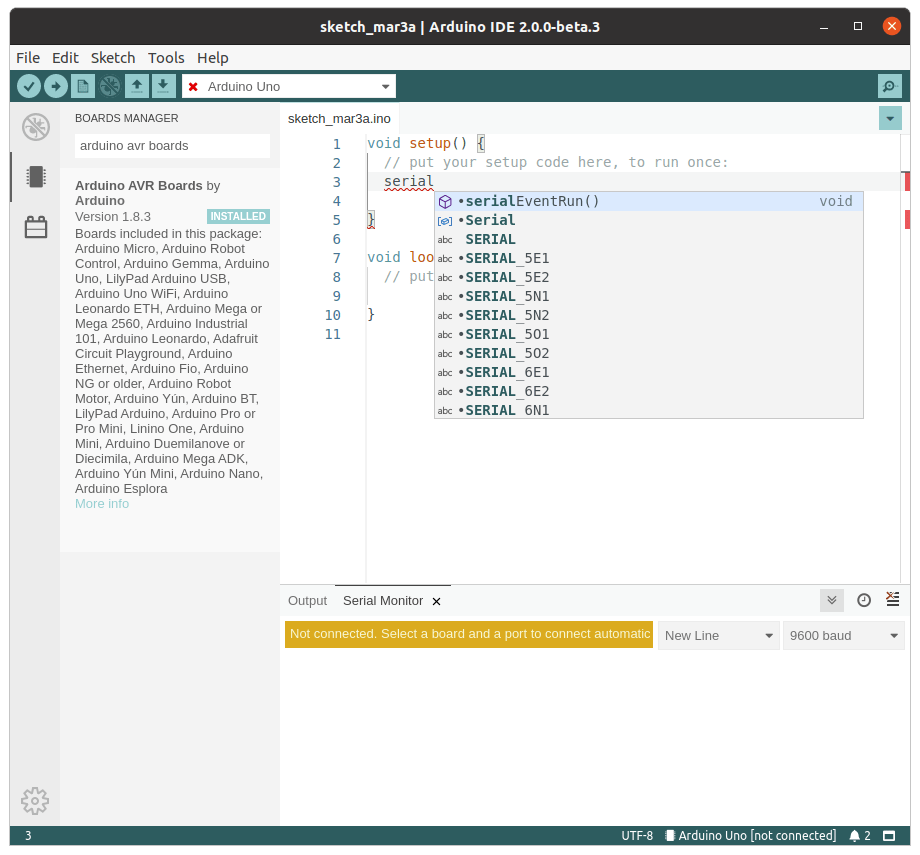Neuralaxy’s NeuroStimDuino is an open-source Arduino shield that allows students, researchers, and hobbyists to study the effects of neurostimulation on muscle contraction easily and cheaply. What is Neurostimulation exactly? It works by applying short electrical pulses to the surface of the skin for the purpose of stimulating the underlying nerves and muscles. Neurostimulation has several uses including a treatment called Functional Electrical Stimulation (FES) therapy to help restore mobility in the paralyzed limb muscles of stroke victims and those who have suffered spinal cord injuries, and studies are being carried out to better understand how it can be leveraged for pain reduction and sensory feedback. NeuroStimDuino hardware specifications: MCU – Microchip dsPIC33F 16-bit microcontroller (40 MIPS) with 256 KB flash memory Two independent 2mm output jack per board with: Adjustable current output range – +/- 25 mA, resolution 250 µA/step Adjustable stimulation frequency range – 1 – 100 Hz, pulse-width […]
Piunora has the guts of a Raspberry Pi 4 with Arduino form factor, M.2 PCIe socket (Crowdfunding)
The Raspberry Pi 4 is a pretty cool board, but if you wished it was just a bit smaller, and you could use the PCIe interface exposed by the Broadcom BCM2711 processor more easily, Timon has designed Piunora carrier board for the Raspberry Pi Compute Module 4. The solution provides a board with the guts of Raspberry Pi 4 SBC but using the Arduino form factor including access to the six ADC pins, and an M.2 socket with the PCIe signal from the Broadcom SoC. Piunora carrier board specifications: SoM compatibility – Raspberry Pi CM4 module with Broadcom BCM2711 quad-core Cortex-A72 processor @ 1.5 GHz, 1 to 8GB RAM, optional 4GB to 32GB eMMC flash, optional wireless module with 802.11b/g/n/ac WiFi 5 and Bluetooth 5.0 Storage – 1x MicroSD card socket (for the OS when using Raspberry Pi CM4Lite system-on-module) Video Output – 1x HDMI 2.0 port up to 4Kp60 […]
Arduino WiFi & Bluetooth watch adds GPS, MicroSD slot, loses audio amplifier
LilyGO introduced the ESP32 powered T-Watch-2020 smartwatch last year with a slim form factor, a 1.54-inch LCD capacitive touch screen, WiFi & Bluetooth connectivity, and support for Arduino. In February, we noted TTGO T-Watch-2020 V3 with a built-in microphone to enable voice control, but the company has just listed TTGO T-Watch-2020 V2 adding GPS and a MicroSD card slot on its Aliexpress store for around $33. TTGO T-Watch-2020 V2 specifications: SoC – Espressif ESP32 dual-core wireless processor with 520KB SRAM System Memory – 8MB PSRAM Storage – 16MB QSPI flash, MicroSD card slot Display – 1.54-inch LCD capacitive touch screen Audio – Max98357 Class-D amplifier, buzzer/speaker Connectivity 802.11b/g/n WiFi 4 and Bluetooth 4.x/5.1 via ESP32 Quectel L76L module for GNSS (GPS, Beidou,GLONASS, QZSS) Sensors – BMA423 three-axis accelerometer with built-in step counting algorithm, activity recognition/tracking, advanced gesture recognition. Expansion – 13-pin 0.3mm pitch FPC expansion socket (shared with MicroSD card […]
ClearCore – An Arduino compatible Industrial I/O and Motion Controller
Teknic, a US-based manufacturer of servo motion control components, has designed ClearCore, a Microchip SAME53 Arm Cortex-M4 based industrial I/O and motion controller that can be programmed with the Arduino IDE for quick prototyping, or Atmel Studio 7 with a more advanced C++ API for more complex projects. ClearCore offers four motion axes, 24-volt compatible analog and digital I/O, support for I/O expansion modules, as well as serial and/or Ethernet connectivity via RJ45 ports. Multiple ClearCore can also be daisy-chained for larger applications. ClearCore key features and specifications: MCU – Microchip SAME53 Arm Cortex-M4F microcontroller clocked at up to 120 MHz, with 512 KB flash, 192 KB of SRAM Storage – MicroSD card slot Connectivity 1x 10/100M Fast Ethernet RJ45 port Support for Xbee modules for wireless communication (WiFi, Bluetooth, ZigBee, DigiMesh, 802.15.4, etc.) I/Os 2x RJ45 serial ports for SPI or UART devices (5V output) 3-pin terminal blocks with […]
NORVI ENET DIN-Rail ESP32 Industrial Controller adds Ethernet port
Announced in 2019, NORVI IIOT industrial controller features an ESP32 WiFi and Bluetooth module, a choice of OLED or TFT Display, 24V DC input, and several analog and digital I/Os all housed in a DIN Rail enclosure. Sri Lanka-based ICONIC DEVICES has now announced an updated version with NORVI ENET DIN-Rail ESP32 industrial gateway based on a similar design, but with the addition of an Ethernet port using W5500 SPI to Ethernet controller. NORVI ENET (AE06) specifications: Wireless Module – ESP32-WROOM32 with ESP32 dual-core processor @ 160 MHz, 520 Kbytes SRAM / 4 Mbit Flash, WiFi 802.11 b/g/n, Bluetooth 4.2 Storage – MicroSD card slot Display – Built-in 0.96″ OLED display Communication – 10/100M Ethernet via W5500 controller, WiFi, Bluetooth, optional LoRa or NB-IoT module I/Os 8x 24V digital inputs for rotary encoders, sensors AE06-R model only – 4x 5A relay outputs for solenoid valves, contactors AE06-T model only – […]
Eduponics Mini is an ESP32-powered Smart Agriculture kit (crowdfunding)
One sector of the economy that should benefit the most from the Internet of Things is the agricultural sector, as environmental sensors are needed to optimize yields and also decrease costs with lower electricity and water usage. STEMinds Eduponics Mini Smart Agriculture kit is designed for this purpose. At the heart of the kit is an ESP32 board equipped with light, temperature, humidity, and barometric sensors, as well as interfaces to connect an external pump, a soil moisture sensor, a water quality sensor, and more environmental sensors. Eduponics Mini board specifications: Wireless module – ESP32-WROVER-B module with ESP32 Wi-Fi and Bluetooth SoC, 4MB QSPI flash, 8MB SPRAM, PCB antenna Built-in sensors BH1750 I2C light sensor BME280 I2C temperature, humidity, and barometric sensor Expansion 2-pin connector for 12V pump with built-in relay module 3-pin connector for soil moisture sensor or any other analog or digital device 4-pin connector for water quantity […]
Machine Learning on Raspberry Pi Pico, RP2040, and future RPi MCUs
Although the Raspberry Pi Pico comes with the RP2040 chip that lacks the performance to implement machine learning inference for its applications. However, we saw a person detection use case through ArduCAM and TensorFlow lite interface. But, the processing performance of the use case was on the slower side. Additionally, a recent Eben Upton presentation also unveiled that due to low power requirements the board compensates the processing efficiency. Hence, it offers low-performance for edge inference and machine learning use cases. Eben Upton’s teaser on improvement in machine learning and the future scope of “Pi Silicon” revealed potential growth and development in edge inference applications. The demand for RP2040 boards has given rise to the market necessity for more boards. This demand can only be fulfilled if more boards with RP2040 chip are available in the market and company “partners such as Adafruit, Pimoroni, Adafruit and Sparkfun are start releasing […]
Arduino IDE 2.0 beta released with live debugger, revamped user interface
Arduino programming language and the Arduino IDE are the most popular software development tools for the makers market, but it lacks some of the features found in professional tools like autocompletion and the ability to add breakpoints via a debugger, and that’s why the company announced its work on the Arduino Pro IDE in 2019. Work is now nearing completion with the release of the beta version of the Arduino IDE 2.0 based on the Eclipse Theia framework. The user interface has been revamped with easy access to the newly added debugger, as well as the boards manager and libraries manager on the left side of the interface, the possibility to type the name of the board, and autocompletion of variables and functions from your code and installed libraries. Pressing F12 while on a function name will bring you directly to the corresponding code in another tab, or alternatively, you […]


